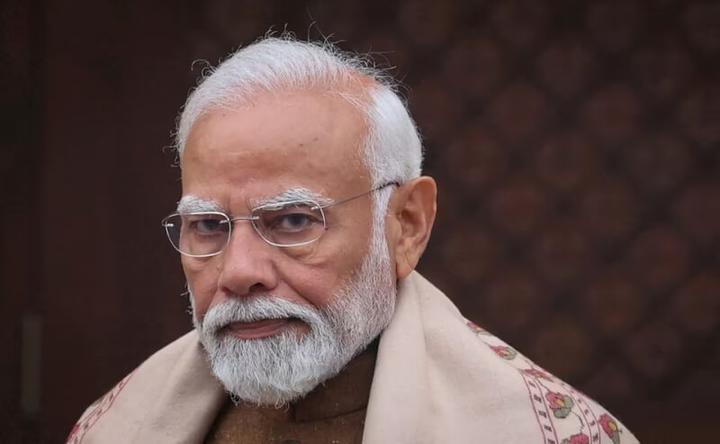Author: Prof. Engr. Zamir Ahmed Awan, Founding Chair GSRRA, Sinologist, Diplomat, Editor, Analyst, Consultant, Advisor, and Non-Resident Fellow of CCG. (E-mail: awanzamir@yahoo.com).
India's geopolitical strategy has increasingly positioned it as a pivotal player on the global stage, participating in both Western and Eastern alliances. As a member of the Quad, AUKUS, the Indo-Pacific Alliance, the G20, and recently seeking closer ties with the G7, India appears to be aligning itself with Western powers such as the United States, the European Union, the United Kingdom, Australia, and Japan. Simultaneously, India maintains memberships in the Shanghai Cooperation Organization (SCO) and BRICS, organizations heavily influenced by China and Russia. This dual alignment reflects India's complex and often contradictory foreign policy, revealing an inherent dilemma and raising questions about its ultimate strategic loyalties.
India's Western Alignment
West needed a partner in this region to counter Russia and China. In return, they extended diplomatic, economic and political support to India. India's participation in Western-led coalitions underscores its desire to establish robust economic and security ties with major Western powers:
Quad and AUKUS: India's involvement in the Quadrilateral Security Dialogue (Quad) with the US, Japan, and Australia highlights its commitment to countering Chinese influence in the Indo-Pacific region. Similarly, its association with AUKUS (Australia-United Kingdom-United States) aligns it with major Western military alliances, emphasizing shared security interests.
Indo-Pacific Strategy: By engaging in the Indo-Pacific Strategy, India seeks to enhance its naval capabilities and ensure a free and open Indo-Pacific, aligning closely with US interests in counterbalancing China's maritime assertiveness.
G20 and G7 Engagements: India's active role in the G20 and its recent overtures towards the G7 reflect its aspiration to integrate more deeply with the global economic order dominated by Western countries. These engagements are seen as attempts to attract investment, technology, and strategic partnerships.
Strained Relations with Neighbors
While India pursues closer ties with the West, it has concurrently seen a deterioration in its relationships with neighboring countries:
• Pakistan: The longstanding conflict over Kashmir, coupled with political and military tensions, continues to strain India-Pakistan relations.
• China: Border disputes, particularly in the Ladakh region, have led to heightened military confrontations, significantly impacting Sino-Indian ties. India wanted to compete with China and simultaneously trying to counter China with the support of West.
• Nepal, Bhutan, Bangladesh, and Myanmar: India's perceived interference in the domestic affairs of these countries, along with border disputes and water-sharing issues, has led to growing resentment and diplomatic friction.
• Sri Lanka and Maldives: India's influence in Sri Lanka and the Maldives is often viewed with suspicion, as these nations navigate their own relationships with China. Recently, newly elected President in Maldives has openly aligned itself with China, leaving India out.
• While confrontation and hostile relations prevails between India and all of its neighbors, simultaneously all of them are enjoying very cooperative and friendly relations with China.
Dual Membership in SCO and BRICS
India's membership in the SCO and BRICS adds another layer of complexity to its foreign policy:
• SCO: Originating from a Chinese and Russian initiative, the SCO focuses on regional security, economic cooperation, and counter-terrorism. India's participation indicates a willingness to collaborate with Eastern powers on these fronts.
• BRICS: As a member of BRICS, India is part of a coalition that seeks to challenge Western financial dominance. However, India's role within BRICS often appears to be aimed at protecting Western interests, particularly the dominance of the US dollar in global trade.
The Belt and Road Initiative (BRI)
India's opposition to China's Belt and Road Initiative (BRI) further illustrates its strategic divergence from China. The BRI, a massive infrastructure development project, aims to enhance global trade routes and connectivity. India's resistance to the BRI is driven by concerns over sovereignty, particularly regarding projects passing through disputed territories in Pakistan-administered Kashmir, and a broader apprehension about China's growing influence in South Asia.
The Geopolitical Tightrope
India's current strategy of engaging with both Western and Eastern blocs reflects its hypocrisy openly:
• Economic and Security Benefits: By aligning with the West, India seeks economic growth, technological advancements, and enhanced security cooperation. The West offers lucrative markets, investment opportunities, and defense partnerships in return of its anti-China and counter Russian facilitation.
• Regional Stability and Influence: In contrast, India’s involvement in the SCO and BRICS is more suspicious. India while staying within BRICS and SCO, is protecting American Interests, Americans hegemony, and dominance of US-Dollars, has losing trust of Russia and China. Sometimes Indian role in BRICS and SCO is considered as spy.
• Diplomatic Credibility: The dual approach, however, risks India’s diplomatic credibility. Aligning too closely with the West may alienate its Eastern partners, while a perceived shift towards the East could undermine the strategic partnerships it has cultivated with Western nations.
The Need for Clarity
India's foreign policy approach reflects it’s over ambitions and greed to develop rapidly by either way, fair or unfair means. However, this dual alignment may not be sustainable in the long run. As global tensions between the West and the East intensify, India may be forced to clarify its strategic priorities. A clear stance is necessary to maintain diplomatic credibility and foster stable, mutually beneficial relationships.
In navigating this complex landscape, India must consider the broader implications of its alliances and ensure that its actions are consistent with its stated principles of sovereignty, non-interference, and regional stability. A balanced and transparent foreign policy will be crucial for India to maintain its role as a significant global actor while fostering peaceful and cooperative international relations especially with its neighbors and regional countries.
(ASIA PACIFIC DAILY)
